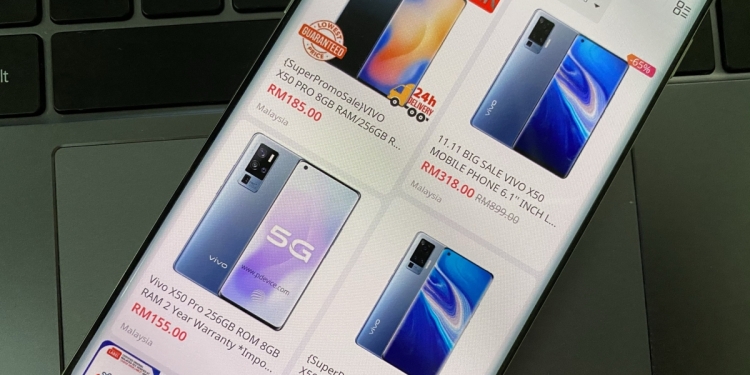Deputy Domestic Trade and Consumer Affairs Minister Datuk Rosol Wahid says that the ministry is mulling a special licence for online businesses in Malaysia to protect consumers from scams. Currently, a special task team is reviewing the current regulations in order to make it happen.
“Online business and digital transactions are becoming a trend. It is important to ensure digital transactions and online businesses on platforms such as marketplace, social media, websites, and shopping apps are conducive and safe besides being user-friendly. We also plan to amend existing regulations to allow for the new licensing mechanism,” said Datuk Rosol.
Online scams nowadays are worryingly common, with examples including a Maxis scam call tactic used to try and get your TAC number, Twitter DM scams, Tinder scams, and job scams. Additionally, scammers have also resorted to setting up fake online stores on popular shopping platforms like Shopee and Lazada—and sometimes it is even tough to tell which stores are legit. Datuk Rosol said that the ministry recorded the highest complaints on scams involving online transactions for three consecutive years.
“For the record, of the total 34,681 complaints in 2020, 11,511 were about online transactions. In 2021, of 27,469 reports received, 11,463 were related to online transactions… So far this year, 15,957 complaints have been received with 4,760 related to online transactions,” he continued.
What are the current enforcements?
Although a special licence has not officially been enforced yet, Datuk Rosol mentioned that enforcement personnel will be a lot more severe on online scammers using existing laws. Section 2 of the Registration of Business Act 1956 requirs each online business to be registered with the Companies Commission of Malaysia—and it is compulsory for online traders to display the business name, business registration number, email, phone number or business address, main description of goods or services offered, full price including shipping fee, freight, tax, other costs, terms and conditions, and estimated delivery time.
Offenders would face two years in jail or RM50,000 fine, or both. First-time offenders face maximum fines of up to RM50,000 or imprisonment of not more than three years or both—with business entities facing double the maximum fine. Individuals committing a second offence or more can be fined a maximum of RM100,000 or jail of not more than five years or both, with a fine of RM200,000 for businesses.
“The ministry is engaging online platform providers, consumer and seller associations, academicians and economists to ensure that every aspect, including consumer and seller protection and enforcement, can be effectively carried out,” said Datuk Rosol.
Can a special licence put an end to fake online stores?
If you’re familiar with shopping around on Lazada and Shopee, two popular shopping platforms in Malaysia, than you would likely be familiar with less-than-trustworthy online sellers. The platforms are known for allowing stores to sell fake products on their platform.
For example, a new phone could be listed for less than RM500 even though it officially retails for RM3,000. At first glance, it may look genuine as the store uses official product photos with complete product names and descriptions. You can read Alex’s article to learn more about how to avoid buying fake products on Lazada and Shopee.
Having online businesses register for a special licence could help prevent customers from falling into online scams. Additionally, it could potentially weed out Facebook scam ads if they make it mandatory for Facebook to only allow ads to run from pages with verified online business registration. And if you didn’t know, Facebook has been notorious for being more than okay with making money and running fake ads rather than fixing its system.








